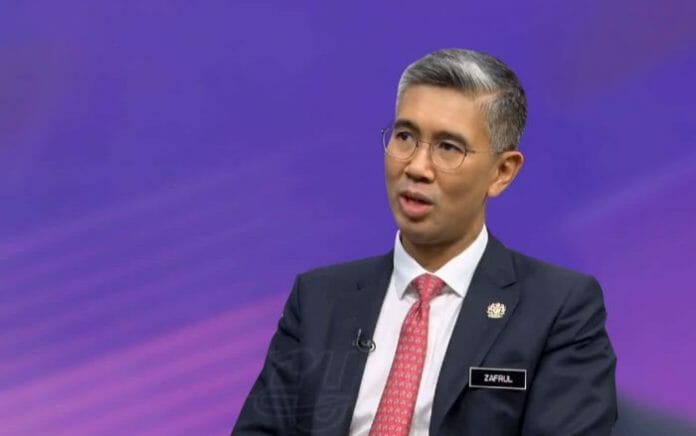The establishment of the Malaysia Centre for the Fourth Industrial Revolution (Malaysia Centre for 4IR) is important to create a continuous ecosystem and talent supply chain to spur domestic direct investment (DDI).
Investment, Trade and Industry Minister Tengku Datuk Seri Zafrul Abdul Aziz said the Malaysia Centre for 4IR is not only able to attract foreign direct investment, but would also draw interest from multinational companies to invest in the country.
“The centre is more for domestic players also (DDI), as when industry players come in, multinationals will come in too. They require the right ecosystem to assist them…that means the right ecosystem and cluster to support the big multinationals, so that small and medium enterprises (SMEs) and mid-sized companies can carry out supply, services, maintenance, and others.
“I think it is important for our industry to be ready, because when the investment comes in, and when large domestic investors continue to invest, we want the whole ecosystem and supply chain, especially SMEs, to be involved,” he told the media at the Ministry of Investment, Trade and Industry’s Hari Raya Aidilfitri open house on Tuesday (May 16).
On Monday, Prime Minister Datuk Seri Anwar Ibrahim announced the establishment of the Malaysia Centre for 4IR, an independent centre within the World Economic Forum global ecosystem focusing on two priorities, namely digital transformation and GovTech, and the energy transition.
The centre is the first in the Asean region that will become the platform to bring together government and business leaders, academics, and experts to create a hub of innovation and expertise to unlock the potential of emerging technologies.
On the digital transformation and GovTech, the centre, which is hosted by MyDigital Corporation, will focus on areas to accelerate the next phase of growth for Malaysia’s digital transformation agenda, and the role that it can play to facilitate regional efforts for Asean’s digital transformation.
Besides that, the centre will support the National Energy Policy 2022-2040 to successfully navigate the energy transition and the development of the green economy, while balancing issues such as energy security, affordability and environmental sustainability.







